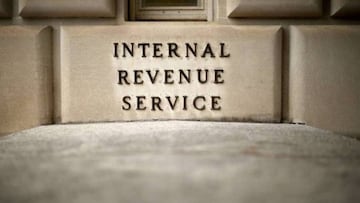When does tax filing season start in 2021?
Tax season is almost here, the IRS will begin collecting and processing 2020 tax filings 12 February, but you can start getting your paperwork ready now.

Tax season is just around the corner, although starting later this year the deadline to finish is once again 15 April. The Internal Revenue Service (IRS) will begin accepting and processing 2020 tax year returns starting Friday, 12 February, 2021. Taxpayers can get head start by filing their tax returns immediately with tax software companies. If you were one of the millions of people who didn't get one or both of the stimulus checks you may be able to claim the funds on your 2020 income tax statement.
The start date was delayed in order to give the IRS time to do additional programming and testing of the agencies systems following the 27 December tax law changes that provided a second round of stimulus checks (Economic Impact Payments or EIPs) and other benefits. The changes to the IRS systems will ensure that eligible people will receive any remaining stimulus money as a Recovery Rebate Credit when they file their 2020 tax return.
Tax filing deadline
Individuals and corporations filing their 2020 tax return will have until 15 April, 2021 to get the necessary forms filed out and turned in. The IRS urges taxpayers to file electronically with direct deposit as soon as they have the information they need to speed up returns. The filing deadline for 2019 returns was extended from April to 15 July, 2020, because of the coronavirus pandemic. However, there has been no change to the filing date for the 2020 fiscal year.
Many working people qualify for the #IRS Earned Income Tax Credit. Do you? Do your loved ones? Spread the word about #EITC: https://t.co/AqeTmmH4gx pic.twitter.com/bfgfkeMo9u
— IRSnews (@IRSnews) January 26, 2021
If more time is needed a filer can apply for an extension and push the filing due date back by six months, up to 15 October. You will need to submit an Application for Automatic Extension of Time to File US Individual Income Tax Return (Form 4868) by 15 April, 2021. The extension will give you more time to file but if you think you will owe taxes, you still need to pay the IRS the estimated amount of what you think you owe by 15 April, 2021.
- 12 February: IRS begins 2021 tax season. Individual tax returns begin being accepted and processing begins.
- 22 February: Projected date for the IRS.gov Where's My Refund tool being updated for those claiming EITC and ACTC, also referred to as PATH Act returns.
- First week of March: Tax refunds begin reaching those claiming EITC and ACTC (PATH Act returns) for those who file electronically with direct deposit and there are no issues with their tax returns.
- 15 April: Deadline for filing 2020 tax returns and paying any money due.
- 15 October: Deadline to file for those requesting an extension on their 2020 tax returns.
IRS Free File
Many people filing taxes in the US are eligible for a free program through the IRS. The IRS Free File program, which is a public-private partnership between the agency and the Free File Alliance, a group of tax preparation companies with online software. About 70 percent of people filing taxes in the US can take advantage of the program. Even more may be able to file through other programs that offer tax preparation services at little or no cost.
To qualify for the IRS Free File program your annual gross income (AGI) in 2020 must be $72,000 or less. The software generally includes step-by-step instructions and help for filers. To use the program, you must go through the IRS site, not directly to a tax preparer. Each partner has its own special offers, including some that offer free state tax returns. Free File opened on 15 January, meaning that people can now enter and submit their tax information. When tax filing opens on 12 February, their forms will be automatically filed with the IRS.
Will I have to pay taxes on my stimulus checks?
Related stories
If you received an Economic Impact Payment (EIP), aka a stimulus check, in 2020 it may affect your tax return for the 2020 tax year. The EIP was based on an individual’s 2018 or 2019 tax return and paid as an advanced tax credit on that taxpayer’s 2020 tax return. The IRS has stated that the stimulus payment is not includable in your gross income, meaning you won’t be taxed on it.
If your economic situation in 2020 made you eligible for an EIP but you didn’t qualify for a payment due to your AGI earnings in 2018 or 2019, you may be able to claim a Recovery Rebate Credit. On the other hand, if your situation in the 2020 tax year made you ineligible for a stimulus check but you received one you can rest easy. There is so far no provision that would require you to pay back the EIP if your tax situation changed in the 2020 fiscal year.
Protect yourself and your loved ones -- #IRS encourages you to share information with friends and family about the IP PIN program. To learn more or to sign up visit: https://t.co/VKD301xplR pic.twitter.com/BBVNC3T4Fc
— IRSnews (@IRSnews) January 26, 2021


